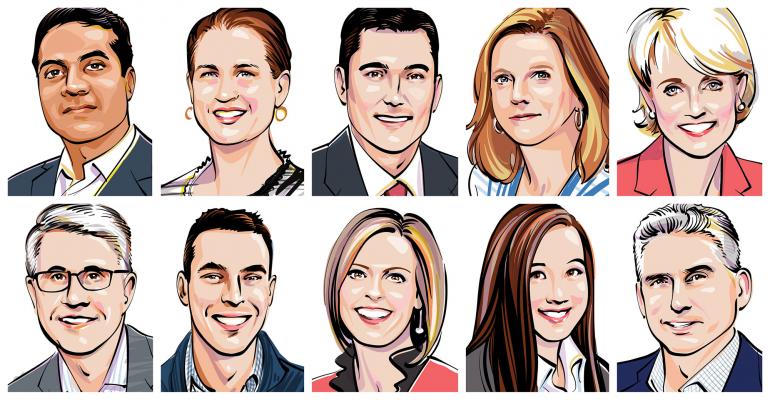In this issue is our annual Ten to Watch list.
I’m used to this by now, so I’ll pre-empt the inevitable criticisms. Yes, some of these people are well-known. In other words, some of the people on the list are already being watched. Don't “at” me, as the fintwit kids say.
So what’s our criteria? To create an eclectic list of industry folks who, even if they are known, are doing something new to get ahead of, or in some cases push forward, industry trends. Think of them as bellwethers: They are on the cusp of changes in the industry that may eventually touch every advisor out there.
Case in point: We all know HiddenLevers as the developers of a platform that lets advisors stress-test client portfolios for economic and market risks. But did you know they are evolving that platform into a first-of-its-kind, enterprise-wide business intelligence tool for large RIAs, to track productivity, client engagement and ROI on every cost (including, potentially, you).
Another: We all know Dr. Carolyn McClanahan as a doctor, financial advisor and omnipresence on Twitter widely quoted in the media for her takes on health care planning. But did you know the digital platform she recently launched with Dr. Chris Heye—Whealthcare Planning—could give you the same tactics to help your clients make better decisions around their health and medical care? Few factors will have a bigger impact on aging clients, and too many advisors are failing to account for them.
Still, two of the most provocative people here, I think, are not yet as widely known, and surprisingly, both come from the asset management space.
I’m not sure if Perth Tolle’s Freedom Index ETF is a “thematic” ETF or an “ESG” ETF, and I’m not sure it matters. Investors immediately understand the story: Tilt your emerging market exposure to companies domiciled in countries that have better records when it comes to freedom of individuals, markets and ideas. Think Taiwan and South Korea, not China or Saudi Arabia. Those countries, ultimately, will produce better economies and, in the long-term, better returns for companies. It crystalizes the false dichotomy many make when it comes to ESG investing, that it’s either values or returns. I don’t think that’s true. Values-based investors can sometimes see risks in a portfolio that don’t always show up on a balance sheet.
Of course, the expression of values differs for everyone; thus, the problem with broad-based, one-size-fits-all ESG funds: They force all clients into the same church. Enter Doug Scott and Ethic. Ethic, and firms doing similar work, herald the biggest disruption of all: Cut out the investment product manufacturer altogether, put the index and the investment decisions into the hands of the person closest to the client (that’s you) to design a bespoke, rules-based portfolio around an individual client’s needs and beliefs, whatever those may be. That’s the promise of direct indexing, and it’s the one development that is definitely worth watching, not just next year, but for years to come.

David Armstrong
Editor-In-Chief





